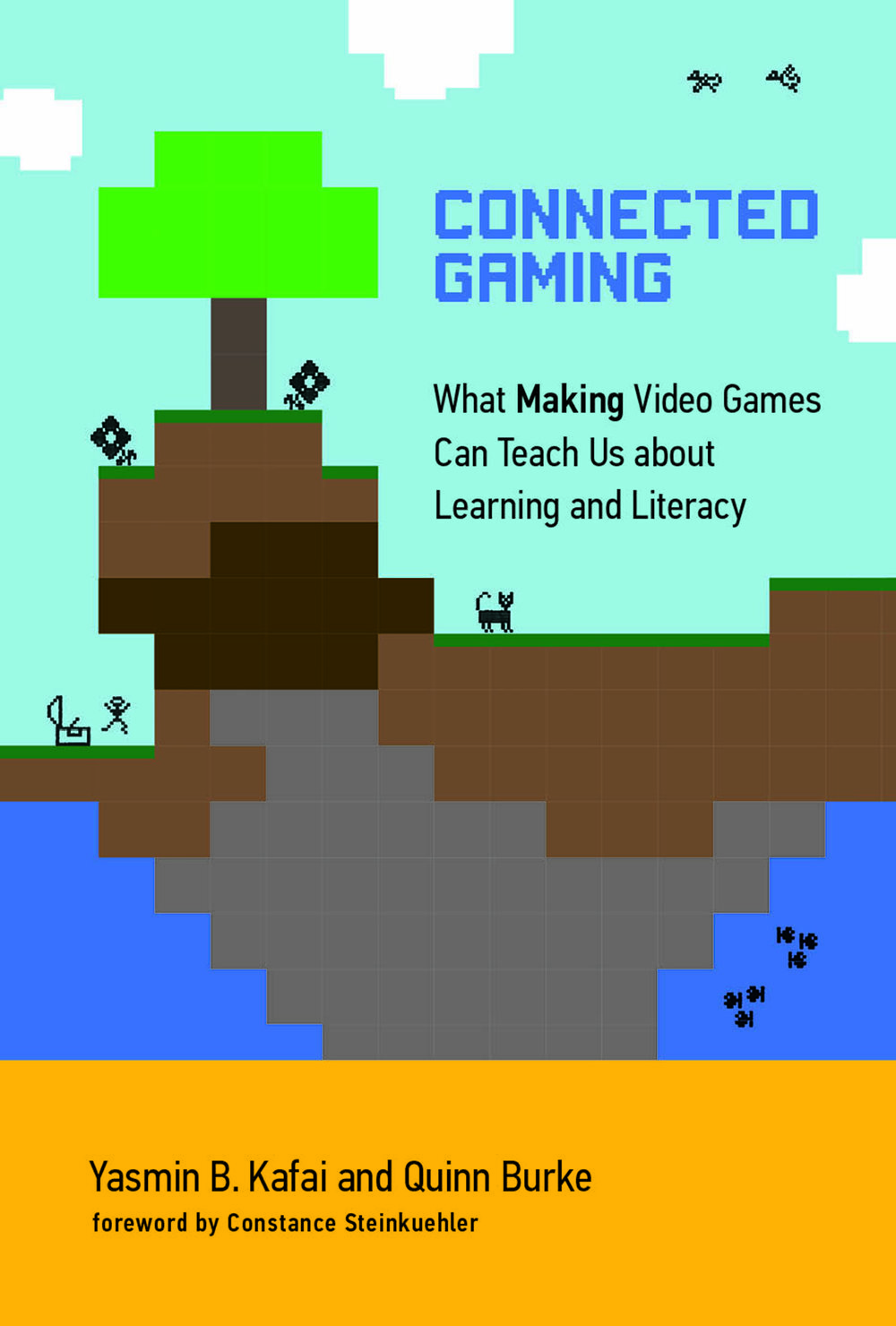Connected Gaming: What Making Video Games Can Teach Us About Learning and Literacy
MIT Press 2016
Over the last decade, video games designed to teach academic content have multiplied. Students can learn about Newtonian physics from a game or prep for entry into the army. An emphasis on the instructionist approach to gaming, however, has overshadowed the constructionist approach, in which students learn by designing their own games themselves. In this book, Yasmin Kafai and Quinn Burke discuss the educational benefits of constructionist gaming—coding, collaboration, and creativity—and the move from “computational thinking” toward “computational participation.”
Kafai and Burke point to recent developments that support a shift to game making from game playing, including the game industry’s acceptance, and even promotion, of “modding” and the growth of a DIY culture. Kafai and Burke show that student-designed games teach not only such technical skills as programming but also academic subjects. Making games also teaches collaboration, as students frequently work in teams to produce content and then share their games with in class or with others online. Yet Kafai and Burke don’t advocate abandoning instructionist for constructionist approaches. Rather, they argue for a more comprehensive, inclusive idea of connected gaming in which both making and gaming play a part.
Endorsements
“The best way to make a critical reader is to teach someone to write. The best way to make a critical gamer is to teach someone to design games. That’s how you liberate young people to be problem solvers and innovators. Kafai and Quinn’s book is essential reading for all educators and anyone else interested in modern teaching and learning.”
“Connected Gaming is a landmark book on games and learning that situates cutting-edge research on games within the deep and enduring work of constructionism and participatory learning. It offers a crucial touchstone for parents, educators, and companies building games for social impact, and will serve as a critical volume for decades to come.”
“In Connected Gaming Kafai and Burke lay out a solid rationale and strong evidence for connecting learning and gaming through game construction. The compelling case that they make not only draws upon decades of their own work but uniquely connects with dozens of other projects and initiatives. It draws a logical line between the contructionist thinking of Papert straight through to Minecraft. This is a book that provides evidence to academics, educators, and innovators seeking to engage students through new pedagogies and teach them new practices in meaningful ways. Kafai and Burke have paved the way for decades more work connecting gaming, constructionism, and learning.”

